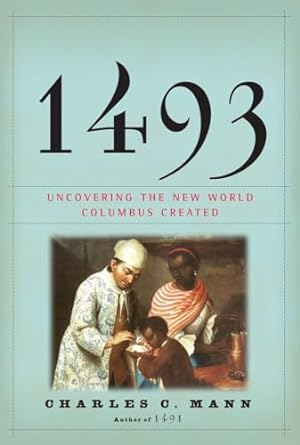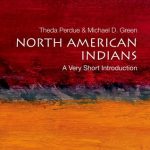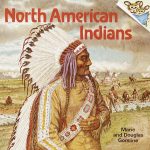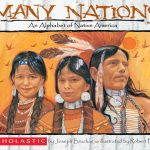1493: Uncovering the New World Columbus Created by Charles C. Mann (Knopf, 2011) details the ecological and human impact of the Columbian exchange. As a dense book full of research carefully explained and expanded, 1493 was certainly not a book I “galloped” through, as one of the historian commentators exclaims on the back cover. But it was a fascinating book for me, in parts. Generally, it examined the significant impact that the exchange of items, creatures, plants, and so forth had on not just the environment but our human identifies in the world.
I was most interested in the exchange of disease and pathogens. This has always interested me, although obviously it is a sad and unfortunate effect of the uniting of the old and new worlds. I’ve often wondered how the world would be different if the Native Americans hadn’t been so quickly obliterated by disease. What have we lost about their cultures? What types of interactions would have come of the colonists’ attempts to settle?
The impact of the disease is directly related to the African slave trade. I had no idea how cosmopolitan the early South American colonies had become, some of it as a direct result of the imported diseases that eliminated Native communities but allowed the already-immune Africans to thrive. Also, is it possible that after the Native communities died, there were more trees in the Eastern North American forests? Native Americans routinely burned huge forests for their own needs. without their large communities, older growth began to flourish.
My interest is mostly for North American impacts, but Mann’s book examined so much more, emphasizing that everything had a global impacts. I admit I skimmed over the part of the chapter about trade with China and the rest of Asia. And, as I mentioned, a good portion of the book looked at the ecological impacts as well as the human impact. Rubber, coming from the Americas, has decimated the land ecologically in many parts of the world, right now in Asia. Truly, the connection of the two worlds has made quite a difference!
Overall, 1493 was a very informative book that gave me a detailed look at the Columbian exchange from a worldwide perspective. If I found portions dragging, it was only because I was more interested in other parts instead.





